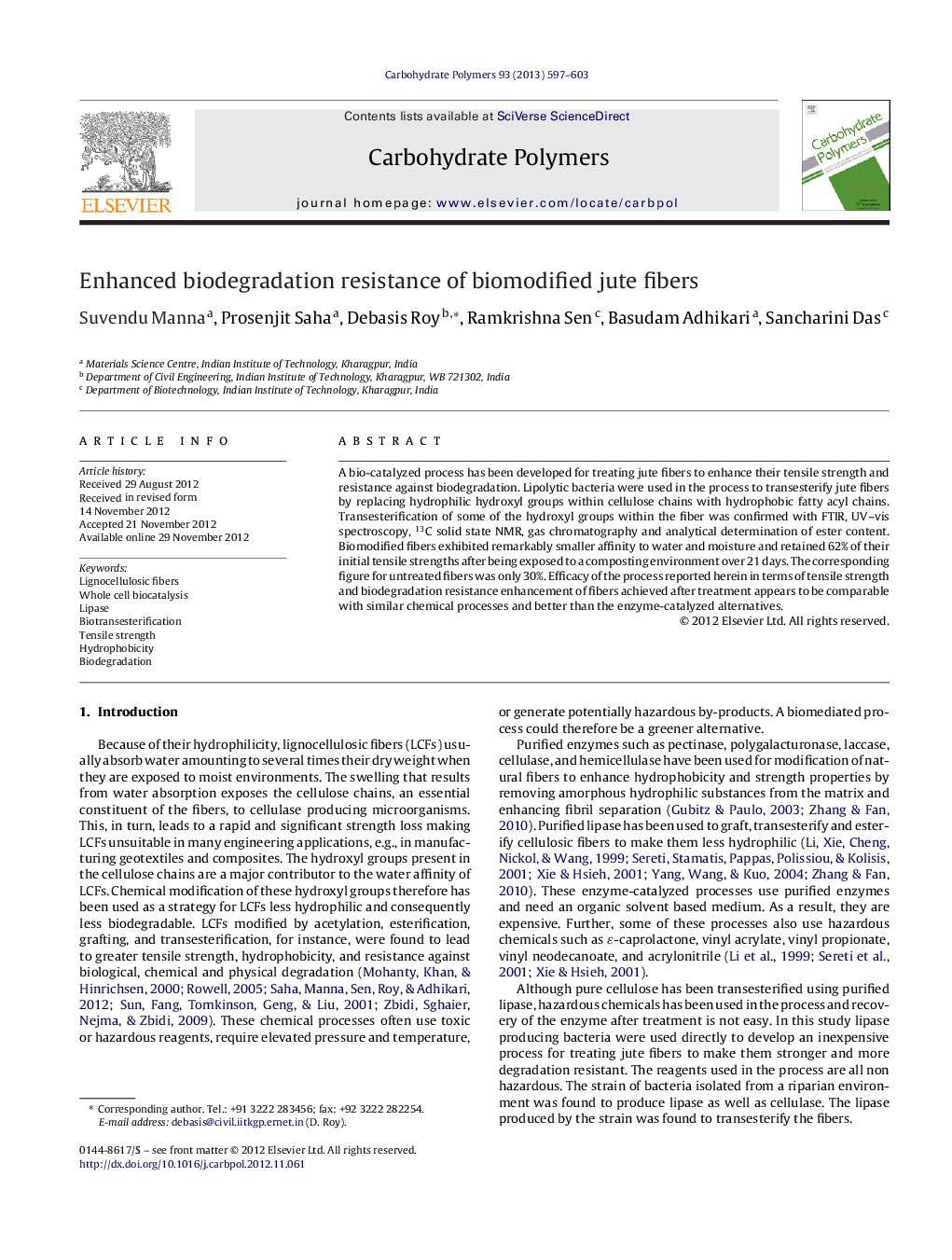| Article ID | Journal | Published Year | Pages | File Type |
|---|---|---|---|---|
| 1384368 | Carbohydrate Polymers | 2013 | 7 Pages |
A bio-catalyzed process has been developed for treating jute fibers to enhance their tensile strength and resistance against biodegradation. Lipolytic bacteria were used in the process to transesterify jute fibers by replacing hydrophilic hydroxyl groups within cellulose chains with hydrophobic fatty acyl chains. Transesterification of some of the hydroxyl groups within the fiber was confirmed with FTIR, UV–vis spectroscopy, 13C solid state NMR, gas chromatography and analytical determination of ester content. Biomodified fibers exhibited remarkably smaller affinity to water and moisture and retained 62% of their initial tensile strengths after being exposed to a composting environment over 21 days. The corresponding figure for untreated fibers was only 30%. Efficacy of the process reported herein in terms of tensile strength and biodegradation resistance enhancement of fibers achieved after treatment appears to be comparable with similar chemical processes and better than the enzyme-catalyzed alternatives.
► A whole-cell catalyzed bio-process is developed to transesterify LCFs fibers. ► Treated fibers were stronger, more hydrophobic and biodgradation resistant. ► The process is inexpensive compared to chemical and enzymatic alternatives.
